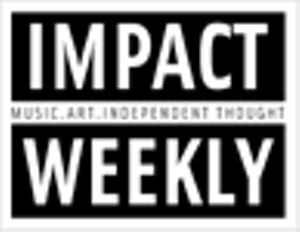Yesse Near the End
Impact employees return, sale not imminent
july 31, 2002 03:16 pm

The story of Yesse Communications may have reached its penultimate chapter, with the sale of Illinois Times in Springfield, Ill., and the appointment of Yesse Vice President of Operations Kerry Farley as general manager of Impact Weekly in Dayton, Ohio, the parent company's only remaining newspaper.
"There is no operational Yesse; there's only on-paper Yesse," Farley says. "Yesse will probably only continue to exist as long as it owes money."
Farley says he does not know the remaining indebtedness of the Indianapolis-based company, which filed for Chapter 11 bankruptcy protection in April 2001. Craig Hitchcock, president of Yesse, has not returned calls for comment.
Although the Dayton Business Journal has reported that Yesse is considering the sale of Impact to Landmark Community Newspapers, Farley says nothing is going to happen in the short term.
"We've actually been in touch with Landmark for over a year," Farley says, negotiating over both Impact and the Bloomington Independent, which closed its doors in December 2001. "They're going to hold off for now, but I'm going to be staying in touch with the guy."
Farley says Yesse is "definitely not closing (Impact) down, ever. And though I think there are others interested in buying the paper, it has to be right."
Someone else with whom Yesse kept in touch with over the years was Fletcher "Bud" Farrar, who owned Illinois Times for 20 years before selling it to Yesse in 1997. On July 25, Farrar bought the newspaper back from Yesse, which had not made its final payment, a move that gave Farrar first right of purchase. Farley says he and Hitchcock knew two years ago Yesse likely wouldn't be able to pay off the purchase.
"We're glad to get the paper back and are looking forward to adding to resources for editorial, and getting some good news stories in," Farrar says, declining to discuss the terms of the sale/reversion.
Sharon Whalen, a former general manager of the Times, has moved back to Springfield after working at Colorado Springs Independent. She has taken over as interim associate publisher, overseeing daily operations. She plans to focus on local issues, government and politics.
"The paper needs to get back involved in the community, more in touch with what's going on," she says. "Whether it's been at its best the last couple of years, or not, Springfield needs and wants the Illinois Times.
"It's not broken, financially or editorially, beyond repair. It's not as strong as it once was, but it's not at death's door."
The Times serves a market of 125,000. One of Farrar's first acts was to pull adult advertisements, which he feels kept it from being family-friendly. Also, after a three-week pullout from local grocery stores -- a brief drop of about 3,000 in its weekly 27,500 circulation -- the Times is back at those pick-up points. Yesse had pulled the grocery copies in early July.
"It was more a matter of paying the bills for distribution," not that the stores wouldn't allow the papers to remain because of the adult ads, Farrar says.
Farrar plans to continue as editor of Messenger magazine, a national publication of the Church of the Brethren. "My office is only two doors from the paper."
Farrar also says he wants Illinois Times to continue as a member of AAN. "I was one of the founding members, and I always supported AAN and enjoyed my membership."
Farrar isn't the only one getting back to work. After an employee walkout due to bouncing paychecks and expired health insurance coverage in June, two editorial staffers returned to their jobs at Impact Weekly early in July. Sara Farr is back as managing editor, and Don Thrasher, who started with the paper in 1993 as a freelance music writer, is again its arts and entertainment editor.
Farley believes he may have an adequate staff level with only eight employees, less than Impact formerly employed.
"The main reason we left, we weren't getting paid, but also, there were problems that were getting worse and worse," Thrasher says. "Basically, all (Farley and Sales Manager Chris Sexson) did while people were gone was to try to straighten out the mess."
"For the first time in six months, I'm able to pay my freelance writers," Farr says, adding that she and Thrasher are now paid all the back wages they were owed.
Contrary to some reports, Farr says she does not intend to change the paper's editorial focus from downtown to suburban Dayton. Farley has proposed ways to distribute and appeal better to readers in the suburbs without altering the editorial focus.
So far, employees still have no health insurance coverage, but Farley says it is the next big task he plans to tackle after old accounts are billed and collected.
Some freelancers are still owed money but are being paid slowly. Robin Keener, a former full-time employee who also freelanced on the side, is still Impact's senior film critic. She is paid up through part of June and says she sticks with the gig partly because she and her son can get free movie passes.
Keener says when she applied for unemployment, the Ohio Bureau of Unemployment Compensation informed her Yesse had not paid into the program since April 2001.
Farley acknowledges the company had neither filed nor paid its quarterly unemployment reports in more than a year because the forms were buried in other paperwork at the home office.
Since then, Keener says the company did "step up and try to help," and she has received some unemployment pay.
Farley credits Impact's new business manger, Bob Frazier, with "cleaning up everything."
Thrasher says the paper "is in better financial shape now than ever before, if you can believe that."
Ann Hinch is a freelance writer based in Knoxville, Tenn.

